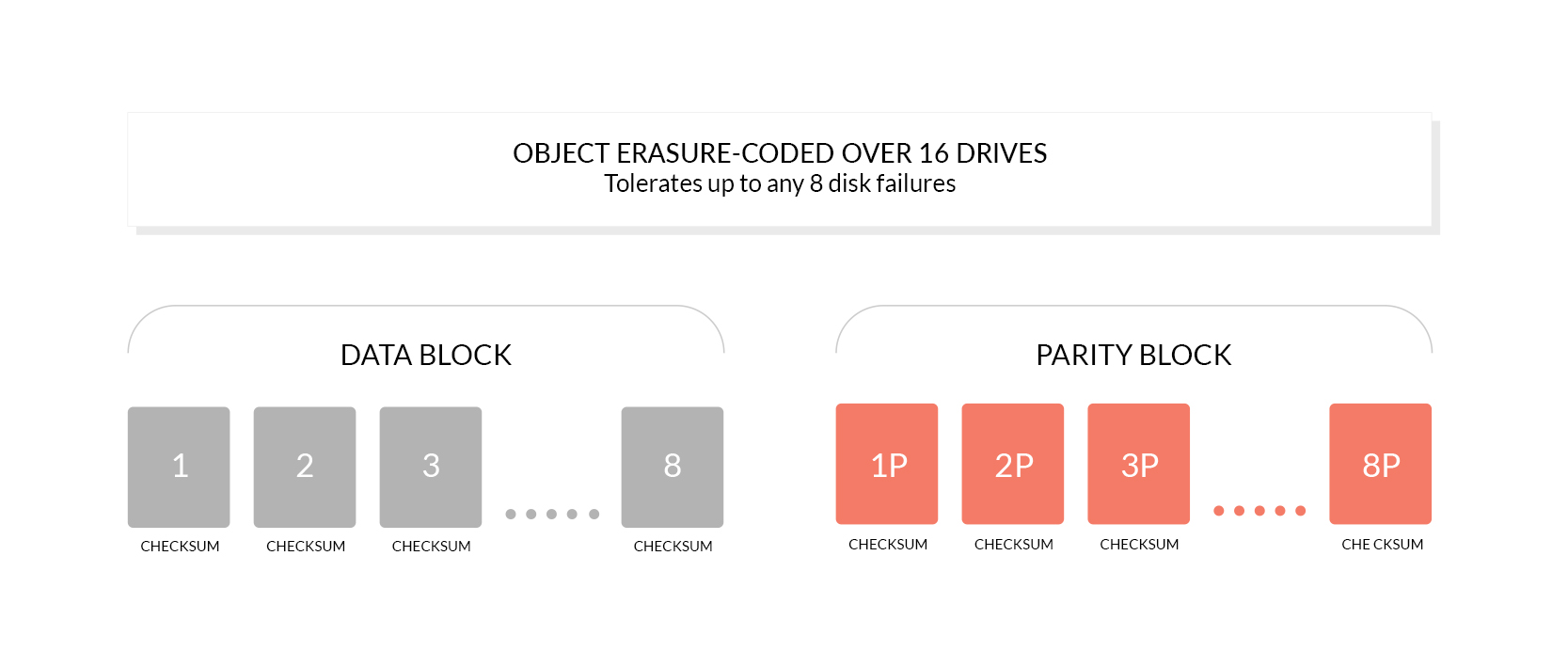- Sort Score
- Result 10 results
- Languages All
Results 201 - 210 of 375 for design (0.04 sec)
-
guava/src/com/google/common/hash/SipHashFunction.java
* or implied. See the License for the specific language governing permissions and limitations under * the License. */ /* * SipHash-c-d was designed by Jean-Philippe Aumasson and Daniel J. Bernstein and is described in * "SipHash: a fast short-input PRF" (available at https://131002.net/siphash/siphash.pdf). */ package com.google.common.hash;
Registered: Fri Dec 26 12:43:10 UTC 2025 - Last Modified: Thu Feb 13 17:34:21 UTC 2025 - 5.3K bytes - Viewed (0) -
docs/erasure/README.md
 ## What is Bit Rot protection?
Registered: Sun Dec 28 19:28:13 UTC 2025 - Last Modified: Tue Aug 12 18:20:36 UTC 2025 - 4.2K bytes - Viewed (0) -
cmd/auth-handler_test.go
{ authT: authTypeStreamingSigned, pass: true, }, // Test 6 - supported s3 type with signature v2. { authT: authTypeSignedV2, pass: true, }, // Test 7 - supported s3 type with presign v2. { authT: authTypePresignedV2, pass: true, }, // Test 8 - JWT is not supported s3 type. { authT: authTypeJWT, pass: false, },Registered: Sun Dec 28 19:28:13 UTC 2025 - Last Modified: Wed Apr 09 14:28:39 UTC 2025 - 15.4K bytes - Viewed (0) -
okhttp/src/commonJvmAndroid/kotlin/okhttp3/RequestBody.kt
* may be sent after response headers or body bytes have been received. * * Though any call may be initiated as a duplex call, only web servers that are specially * designed for this nonstandard interaction will use it. As of 2019-01, the only widely-used * implementation of this pattern is [gRPC][grpc]. * * Because the encoding of interleaved data is not well-defined for HTTP/1, duplex request
Registered: Fri Dec 26 11:42:13 UTC 2025 - Last Modified: Tue Oct 07 14:16:29 UTC 2025 - 9.3K bytes - Viewed (0) -
android/guava/src/com/google/common/graph/ArchetypeGraph.java
* {@link Collection#contains(Object)} (which does not generally throw if the object cannot be * present in the collection), and the desire to have this method's behavior be compatible with * {@code edges().contains(endpoints)}. * * @since 27.1 */ boolean hasEdgeConnecting(EndpointPair<N> endpoints);Registered: Fri Dec 26 12:43:10 UTC 2025 - Last Modified: Tue Nov 11 17:11:16 UTC 2025 - 7.5K bytes - Viewed (0) -
docs/de/docs/advanced/advanced-dependencies.md
Dies war so designt, hauptsächlich um die Verwendung derselben von Abhängigkeiten „geyieldeten“ Objekte in Hintergrundtasks zu ermöglichen, da der Exit-Code erst ausgeführt wurde, nachdem die Hintergrundtasks abgeschlossen waren.
Registered: Sun Dec 28 07:19:09 UTC 2025 - Last Modified: Tue Dec 02 17:32:56 UTC 2025 - 10.4K bytes - Viewed (0) -
docs/fr/docs/deployment/manually.md
conçu pour Django Channels. ## Machine serveur et programme serveur Il y a un petit détail sur les noms à garder à l'esprit. 💡 Le mot "**serveur**" est couramment utilisé pour désigner à la fois l'ordinateur distant/cloud (la machine physique ou virtuelle) et également le programme qui s'exécute sur cette machine (par exemple, Uvicorn).
Registered: Sun Dec 28 07:19:09 UTC 2025 - Last Modified: Sat Oct 11 17:48:49 UTC 2025 - 5.3K bytes - Viewed (0) -
docs/de/docs/tutorial/cors.md
## Schritte { #steps } Angenommen, Sie haben ein Frontend, das in Ihrem Browser unter `http://localhost:8080` läuft, und dessen JavaScript versucht, mit einem Backend zu kommunizieren, das unter `http://localhost` läuft (da wir keinen Port angegeben haben, geht der Browser vom Default-Port `80` aus).Registered: Sun Dec 28 07:19:09 UTC 2025 - Last Modified: Wed Dec 17 20:41:43 UTC 2025 - 6.3K bytes - Viewed (0) -
fess-crawler/src/main/java/org/codelibs/fess/crawler/helper/MemoryDataHelper.java
/** * The {@code MemoryDataHelper} class provides a helper for managing crawler data in memory. * It stores URL queues, access results, and URL patterns for inclusion and exclusion. * This class is designed to be used in a single-threaded environment or with external synchronization. * * <p>It uses {@code Map} and {@code Queue} data structures to hold the data. The class providesRegistered: Sat Dec 20 11:21:39 UTC 2025 - Last Modified: Sun Jul 06 02:13:03 UTC 2025 - 8.1K bytes - Viewed (0) -
docs/en/docs/tutorial/metadata.md
/// tip You don't have to add metadata for all the tags that you use. /// ### Use your tags { #use-your-tags } Use the `tags` parameter with your *path operations* (and `APIRouter`s) to assign them to different tags: {* ../../docs_src/metadata/tutorial004_py39.py hl[21,26] *} /// info Read more about tags in [Path Operation Configuration](path-operation-configuration.md#tags){.internal-link target=_blank}.
Registered: Sun Dec 28 07:19:09 UTC 2025 - Last Modified: Wed Dec 17 20:41:43 UTC 2025 - 5.9K bytes - Viewed (0)